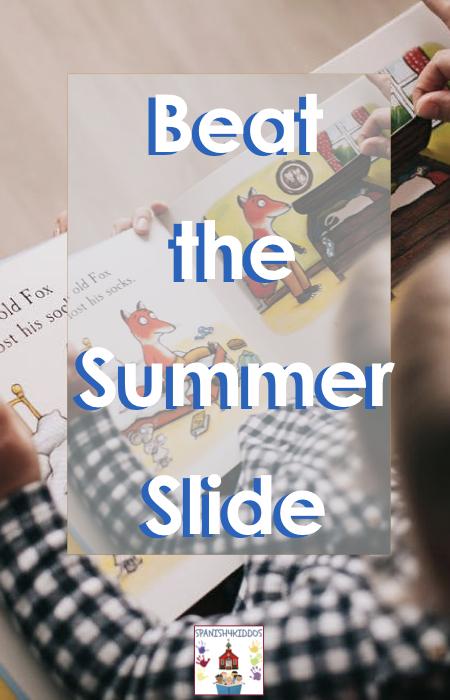
The Summer Slide occurs every year, all the time after school is over. Much like a typical slide, your children encounter at a playground, sliding during the summer break brings learning loss. Often, the Summer Slide progresses during the middle of the summer break. As soon as children spend time outdoors, at summer camps, or even travel during family vacations, coming back to reality is sometimes dreadful.
However, there is no wondrous remedy. On the other hand, countless experts and teachers encourage, if not, plead you to get your child to read over the summer. How do you motivate your child to read over the summer?
What is the Summer Slide Reading?
The Summer Slide is a traditional term when students are out of school for the summer but forget to continue learning or reading. Countless research showed that summer reading affects mostly low-income students. Regardless of socioeconomic status, children that don't continue reading over the summer disengage in learning.
So, when school starts up again in the fall, children with a lack of motivation to read tend to need more review. Reading helps in preventing the Summer Slide. One of the most apparent reasons is learning. You may have a room filled with books. However, if your child lacks the motivation to read, he or she struggles to catch up.
The Summer Slide is preventable. Often, you can encourage your children to read with incentives or library trips. While those efforts can persuade your children to pick up a book, continuing to motivate them may take additional reinforcements.
Tips to Encourage Your Child to Read More
There are several tips to prevent the Summer Slide. Before you decide to implement reading as part of learning, ensure you discuss with your children why you need to read.
- First, go to a local library and spend some time browsing favorite books.
- Ask your children; what is a favorite topic? A library consists of various subjects and authors. So, take the time to investigate the preferred theme for your child.
- Next, talk with your librarian. Your librarian or library staff can recommend books by reading level.
- While all books for children may seem ideal, revise the content and reading level.
- In that case, you don't want your child to select books too easy that they finish quickly or too challenging that can frustrate.
- While at the library, check out any summer reading program that monitors the reading progress of kids.
- Many libraries offer rewards or prizes for completing a set of books.
Using Special Reading Companions and Technology
- Besides participating in reading programs, libraries have special story times for young kids or reading buddies.
- For instance, reading buddies are trained dogs that visit libraries.
- These specialized dogs allow children to sit next to them and read aloud; they are therapeutic and encouraging motivators.
- Also, continue to encourage reading while away from home.
- Are you going on a family vacation or is your child attending summer camp? Still, encourage your child to read over those days.
- Does your child prefer to read on a personal device? Then, emphasize that.
- You can install apps that can monitor your children's reading time, progress, and titles.
- Many book titles are available as ebooks. You can easily find them through your iPad, Kindle, or electronic device.
- Ebooks are ideal companions for young readers.
- You can download numerous titles in one device instead of carrying plenty of books around.
- However, a paper copy is always good to have on hand.
- Aside from personal convenience, ebooks are perfect for special need children.
- With so many options with your own devices, you can change the font size, use a text-to-speech feature, or look up terms.
Other Fun Ways to Prevent the Summer Slide
Enrolling in a reading program at your local library is not the only option. If you're looking for a program online, consider the Scholastics Read-A-Palooza. This reading challenge program recommends hundreds of book titles for all ages. The best part of the program is that Scholastics then donates depending on how many books children read over the summer.
Amazingly, this collaboration occurs all around the globe to encourage reading. The site also offers Spanish book reading recommendations. Add more reading fun when you select books that turned into movies.
Aside from Harry Potter and the Hunger Games, there are other great book titles portrayed in motion pictures. If you visit a local museum or aquarium, then check out a book to help you learn more. Selecting books about places, food, animals, or just about any topic can help you and your children explore more about the world.
Also, reading a book series encourages selecting book after book and motivating children to know more. Some great examples are the Magic Tree House, Berenstain Bears, Fancy Nancy, Pete the Cat, Curious George, Frog and Toad, and Judy Moody.
Do you read in the bathroom? Well, why not! One reading expert encourages placing reading materials in your children's bathroom.
That way, they are motivated to read while waiting. The bathroom is not the only place you wait. Consider carrying a book while you're at the doctor's office, in the car while stuck in traffic, or waiting in line.
Why is It Important to Read Over the Summer?
Perhaps, you already know how vital reading is for your child. The benefits of reading carry you over a lifetime. That is, literary experts and children psychologists recommend reading during extended periods of not learning.
The brain needs constant stimulation to grow. As a result, reading supports those skills children learned in school. One expert in a recent interview established reading is crucial.
Calvert emphasized that to prevent the summer slide, children need to read 30 minutes or more every day. In this way, she suggests reading is like practicing an instrument. You get better at playing when you practice every day. Reading is no different.
She also recommends reading aloud motivates children since they experience first hand to connect with others and learn communication skills. Another reading expert suggests reading is more than picking up a book. Willingham explains reading is learning about experiences to value those events not experienced in life.
For example, traveling to another part of the World or eating a different cuisine are ways to explore the world through books. He further suggests reading as a family conveys a sense of family traditions. So, children view books as a family value, not as a chore.
Final Thoughts
The Summer Slide during a long period without learning is more than detrimental to children. Reading encourages young learners, especially low-income students, to continue learning. While there are ways to motivate your children to read, the best part is to encourage them to value reading as a family tradition.
Many schools and parent advocates even promote year-round schooling to prevent the Summer Slide. However, many parents feel the idea of education all year long is overwhelming. That is, families with children that attend different grades and schools would have to adjust to various academic calendars.
Year-Round schooling is an excellent option for low-income students that lack support at home. Nevertheless, school districts have many considerations when it comes to staff, funds, and resources. Tell me what you think! Should schools have year-round learning to prevent learning loss?

